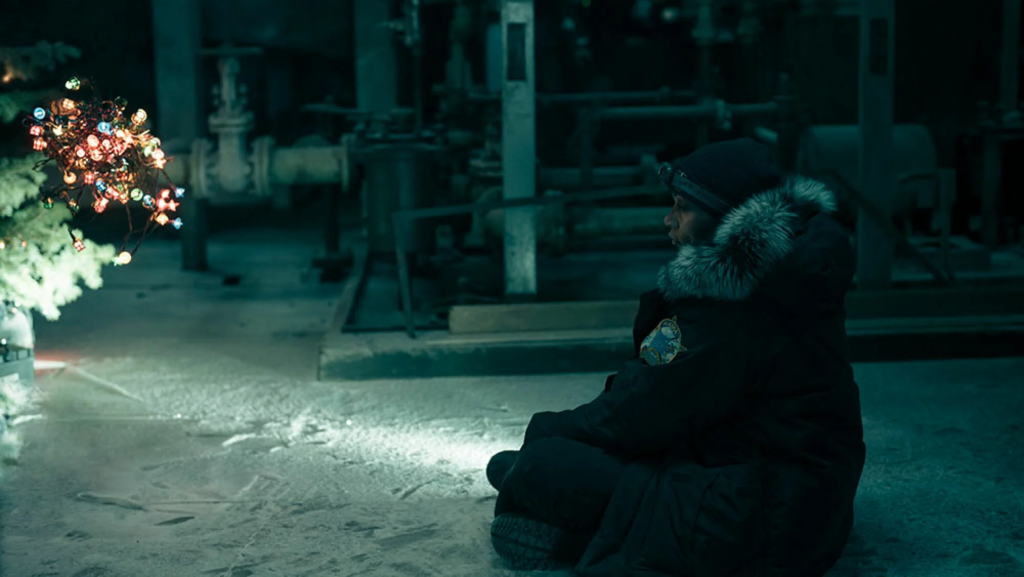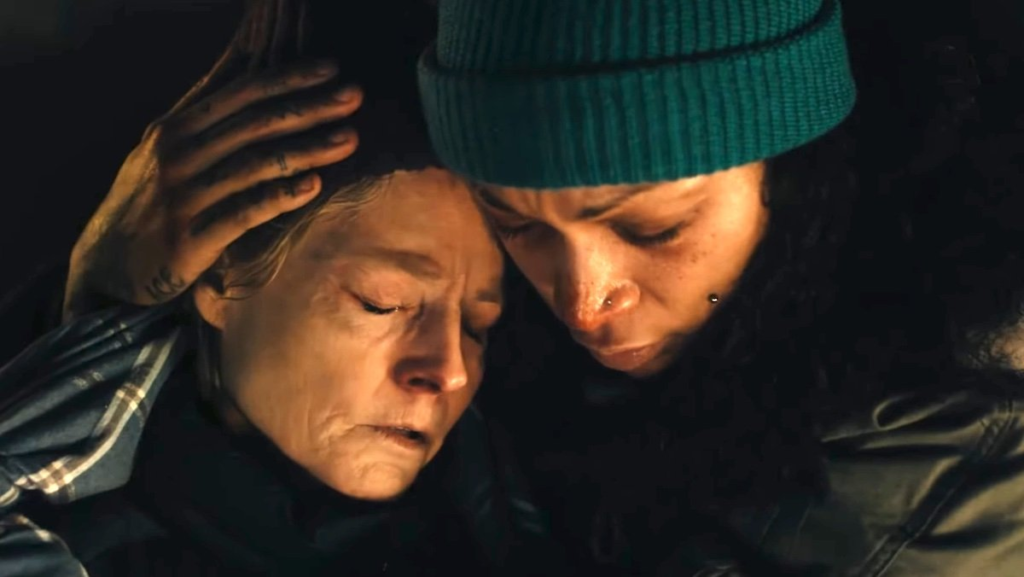Season 4 of True Detective wasn’t perfect, but it treated a hard subject with empathy & realism.
(CW: suicide. Spoilers ahead.)
The finale of True Detective: Night Country aired this past Sunday, and it was met with the usual measured response. Those who liked it thought it was pretty good, those who didn’t were convinced it was the worst thing to ever happen to eyes. Nic Pizzolatto, the original creator of the series, was particularly petty and uncharitable, taking to Instagram to repost some of the harshest criticisms of the season, which, unsurprisingly, he was not involved in.
Funnily enough, most of the complaints about Night Country could be applicable to the three earlier installments: lots of interesting ideas with not nearly enough follow-through, occasionally overwritten dialogue, too many characters with too little to do, sacrificing plot for atmosphere, etc. I’ll leave it to speculation as to why this season, in particular, is getting so much hostile pushback.
One criticism I’ve seen ties into the closing episode, which (more or less) finds justice for Annie K.’s murder, but leaves the fate of Navarro (Kali Reiss) ambiguous. It ends one year after the research station deaths, which have officially been declared accidental, and Silver Sky has closed. Things have returned to as normal as a godforsaken place like Ennis can get, except that Navarro has left at some point. No, not left, disappeared, with no forwarding address or phone number, with no nothing.
Danvers (Jodie Foster), when talking to some state investigators who have a vested interest in where Navarro might be, is cagey at best, only saying “You won’t find her out on the ice.” The last we see of Navarro, she appears to be wandering a much sunnier world than the one she was in before. She even pays a visit to Danvers, as the two of them share a cup of tea and enjoy a pastoral view. Given how much of the season was devoted to Navarro’s struggle to hold herself together, and her family’s history of mental illness, it’s not unreasonable to interpret that this free and happy version is how Danvers has chosen to think about her, and that, in fact, Navarro has committed suicide.

Again, this is very much open to interpretation. Navarro really could be alive and well, chilling with Danvers in Lake Tahoe or wherever. Reiss and showrunner Issa Lopez aren’t confirming either way. What some are finding fault with is that, if Navarro is actually dead, to portray her as being in a happier, better place irresponsibly “romanticizes” suicide.
Hollywood has long had a strange relationship with suicide. Mostly it’s portrayed as an impulsive act meant to startle the audience, like Little Bill’s death in Boogie Nights. Sometimes it serves as a tragic turn of events, like the doomed Daisy in Girl, Interrupted. Or, occasionally, it’s meant to condemn a cruel and unjust system, like Billy Bibbit in One Flew Over the Cuckoo’s Nest. If you really want an irresponsible take on suicide, there’s Netflix’s 13 Reasons Why, a series that inaccurately portrays it as an act of revenge, and reinforces every harmful stereotype of suicidal people as manipulative ad narcissistic.
As someone who’s struggled with suicidal depression, I don’t believe that Night Country romanticizes suicide. It’s honest. Rarely does a single event in one’s life trigger a suicidal spiral. It’s slow-growing, accumulative. One day it just occurs to you: I don’t want to do this anymore. It’s not the events of the show that drive Navarro to the edge, she’s already been teetering for a long time. Her violent temper puts her at constant risk of losing her job. She’s haunted by the mental illness that took her mother, and eventually her sister, the one person who was tethering her to the world. Even knowing what really happened to Annie K. brings her cold comfort at best, because at least she knows she wasn’t foolishly grasping at straws. But she’s still alone, and the thing that took her only blood family is close behind her.

Navarro spends much of the season hinting that one of these days she’s going to walk out on that ice and not return. It’s in the way she interacts with people, like Qaavik (Joel Montgrand), her bartender friend with benefits who wants to be more, but she keeps him at a firm distance. It’s not that she doesn’t care about him, but that she doesn’t want anyone keeping her around. It’s a common thing for suicidal people to quietly withdraw from friendships and romantic partners, out of a desire to not cause anyone pain (though of course that part never works), and for no one to talk them out of it.
Quite the opposite of irresponsible, Night Country shows tremendous empathy for people who struggle with such thoughts. Navarro isn’t a coward, and she’s not trying to teach anyone a lesson, or drag anyone down with her. Because we struggle so much with the concept of what it means to end one’s life, we create these scenarios where someone is “sending a message” or lashing out when they hurt themselves, when in reality they just want to stop hurting. In imagining a peaceful life for Navarro far away from the murky chill of Ennis, rather than be angry Danvers is honoring her: in another time, and another place, things would have been different. I’m sorry they weren’t.
I’m not saying “it’s a good thing Navarro committed suicide.” I am saying that giving her a happy and optimistic ending betrays her as a character, a character who seems like she can’t remember the last time she woke up glad to be alive. There’s no such thing as inevitable in these situations, but there is resignation and acceptance of the idea that sometimes the monster wins, and sometimes people just don’t want to keep going. It’s neither “romantic” or irresponsible. Irresponsible would have been if wrapping up the Tsalal case suddenly made everything better for Navarro, if the weight had been immediately lifted off her shoulders and she settled into a peaceful life, maybe with Qaavik, or forever trading wisecracks with Danvers. It doesn’t always work like that. It would be so nice if it did.